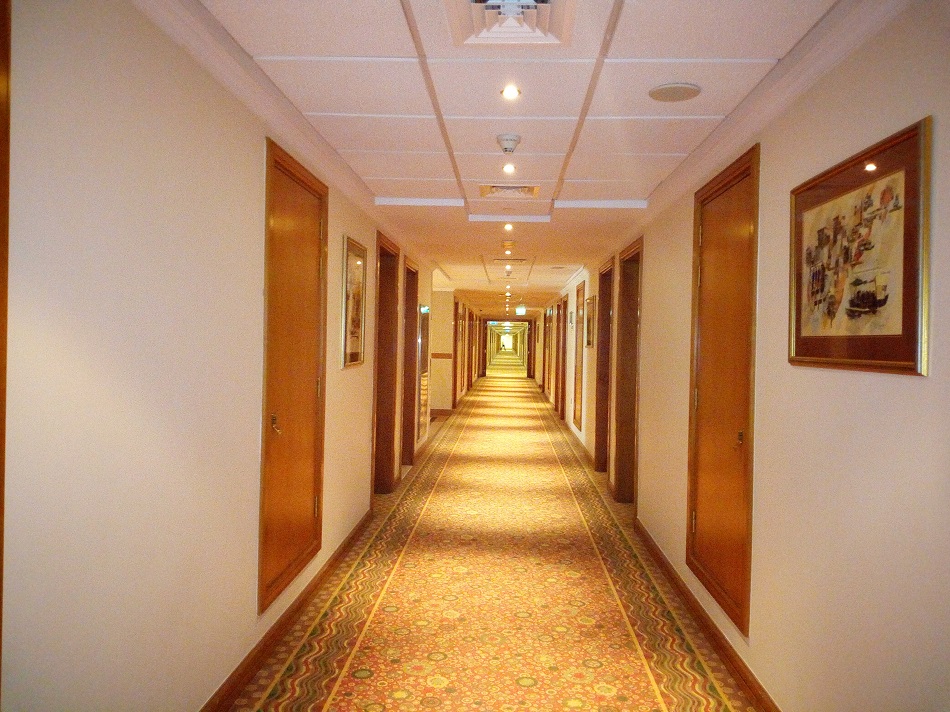BY ABDULKARIM AHMED
Every company experiences an organic cycle of economic growth and decay. A business cycle typically comprises four phases: expansion, peak, contraction and trough. Although there are no predetermined intervals between each phase, there are indicators that can help you identify which phase you’re in and anticipate when the next downturn will occur.
Businesses in the hospitality industry are exceptionally vulnerable to economic fluctuations, geopolitical unrest and uncommon occurrences like terrorism or pandemics. In a similar vein, they must decide how to organise services and fees or whether to hold capital assets under one ownership structure or another.
The hotel businesses that performed better than the rest of the sector during the previous downturn didn’t increase their capital expenditures on tangible property. Instead, they adopted an asset-light strategy that reduced their reliance on discretionary consumer spending and increased the stability and recurrence of their fee income.
Advertisement
A lot of hoteliers and hospitality-focused companies are in a pickle about how to stay afloat or even continue in business because of the global economic and political downturns. To take actions that will ensure businesses continue to generate income and a substantial profit during these challenging times, it is crucial to strategise using research and expert knowledge.
Hospitality business owners will find the following tips useful in ensuring they stay profitable during this economic downturn.
Look into new revenue streams: During a recession, diversifying your clientele can be a wise business move as it might lessen the blow of losing other critical customers. This can entail reorganising your business model to focus on more crucial markets with rising consumer demand. You can boost profitability and increase your market by modifying your current offering to meet these new client demands.
Advertisement
In addition to promoting local destinations, delicacies, and outdoor excursions, this is an excellent time for hoteliers to experiment with a variety of digital initiatives to attract young, affluent and tech-savvy travelers by leveraging guests’ online touchpoints and offering digital tours, live streaming via social media channels, etc.
Work on cost efficiencies: Cutting corners or lowering the quality of your brand’s offering should never be necessary to save business expenditures and this includes customer service. Instead, you should look for ways to eliminate wasteful spending to lower financial risk. For instance, you could try to negotiate more flexible terms with your suppliers. You can locate a sweet spot between supply and demand that leads to steadier cash flow by fine-tuning your sales estimate. Consider examining your company’s running expenditures as well, including things like your commercial energy plan and insurance coverage.
Develop a unique service offering: Offer your guests or customers a product or service that is currently unavailable in the market space you operate in. Do this by thoroughly Investigating the shortcomings of your competitors’ offerings through oppo-research. Give your new concept, if it already exists, a new spin to make it more appealing. Carry out polls to tighten possible links, then promote your hotel’s concept as something fresh and innovative that will provide your guests a one-of-a-kind experience, unlike anything they have ever had.
Set up a revenue management system that works: To maximize revenue, most hotel management systems provide pricing tools and other features. Gone are the days when you could just have a peak season and a low season price — if you’re not setting prices in a more sophisticated way, you’re losing out on bookings and not making the most of the ones you do get. Product rates, rate dependencies, special offers and regulations such as package rates should all be able to be created and customised.
Advertisement
Invest in solutions that increase energy efficiency: Energy efficiency can be a wise choice when every penny counts, especially as utilities account for the biggest share of property owners’ controllable costs. The correct energy-saving methods, air conditioning systems, water heating, and optimal lighting, when combined with cutting-edge technologies, can significantly increase return on investment and reduce utility costs.
Replace your energy supply with sustainable or renewable energy such as solar panel technology to smart lighting technology, there’s no time like the present for hotels to begin reaping the energy-saving benefits of new technologies.
Get the most out of your existing customers: Getting a customer to check in after making a reservation is just the beginning of the profit-making journey for hospitality businesses. Great work! The guest has checked in, and you’ve won the reservation. What’s next? It’s time to maximise the value of your current guests rather than focusing on getting the next reservation. Open the lines of communication, provide enticing upsells and offers for on-site amenities, and make incremental income growth a top focus.
You’ll be more in control and less subject to the whims of others if you have a strong supplementary strategy. Things like upselling room upgrades and other ancillaries let you make more money. You’ll be more profitable and less susceptible to revenue drops from fewer reservations because up-selling enables you to earn more from the same guest.
Advertisement
In conclusion, hospitality-based businesses don’t have the luxury of watching the economy dip and reacting accordingly. Forward-looking hoteliers must prepare for natural peaks and troughs before anyone else. To be a savvy hospitality business owner, you must be able to read the signs which point toward economic recession and take steps to ensure proper preparedness. For example, supply and demand is one key indicator that many business owners rely on to signal an economic downturn.
Abdulkarim Ahmed, managing director of V-Hospitality, a management consulting firm, writes from Abuja.
Advertisement
Add a comment






